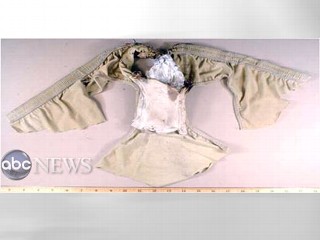Declassified, the blog for Michael Isikoff and Mark Hosenball, has two interesting postings on the Christmas Package Bomber. The picture for how exactly the "system failure" occurred is slowly emerging.
Based upon their two articles, it appears that Customs and Border Protection did not check an inbound passenger roster against a database managed by an office of the Director for National Intelligence (a 9/11 commission created position). Also, the National Counter-terrorism Center (a 9/11 commission created organization) entered information on Umar Farouk Abdulmutallab into the DNI managed database.
Homeland Security officials told reporters, on condition of anonymity, today that the National Targeting Center, a suburban Washington office which is part of the Bureau of Customs and Border Protection (which in turn is part of Homeland Security) has a special room where officials who do advance screening of airline passenger lists can go to access classified data bases including TIDE, the classified data base, maintained by a division of the National Intelligence Director's office, which is supposed to be the government's broadest source of raw intelligence information about terrorism suspects. As Newsweek and other media have previously reported, after the father of alleged would-be underpants bomber Umar Farouk Abdulmutallab notified an American Embassy in Nigeria of concerns that his son had fallen in with islamic extremists -- possibly in Yemen -- the National Counter-terrorism Center, which maintains TIDE, entered a report from the Embassy about the father's concerns into the TIDE data base.Nefarious information received by the CIA from Abdulmutallab's father was passed to the State department. This did not meet the threshold to repeal Abdulmutallab's U.S. Visa.
According to news reports, CIA personnel were involved in discussions with Alhaji Umaru Mutallab, Umar's father, when the father went to the American Embassy in Abuja, Nigeria, on Nov. 19 of this year to ask for help in locating and retrieving his son. The next day, according to U.S. national security officials, embassy officials, including representatives of the CIA and other agencies involved in counterterrorism operations, met to discuss the father's information.In review:
As a result of this meeting, as we reported on Monday, a cable was sent by the embassy into Visas Viper, a database used by the State Department to track foreigners who hold or apply for U.S. visas. This cable noted the father's concern that his son "may be involved with Yemeni based [Islamic] Extremists." Information from this cable was subsequently entered into the government's broadest classified database on terrorist suspects, known as TIDE, which is maintained by the National Counterterrorism Center (NCTC), a unit of the National Intelligence Director's office that was set up after 9/11 to ensure that counterterrorism information was rapidly shared among relevant U.S. agencies.
- The DNI owns a database that is managed by NCTC in which information is entered by the CIA.
- The State department had access to this database but did not repeal Abdulmutallab's visa.
- The information from Abdulmutallab's father was enough to place his son into the DNI database, but not on the No-Fly List.
- Customs and Border Protection (a division of DHS) did not cross-check the inbound passenger roster against the DNI database which they could have accessed.
- Transportation and Security administration (a division of DHS) did not find the bomb components brought onto a U.S.-bound aircraft.
- Citizens that elected the U.S. government leadership had to take matters into their own hands as the government failed yet again.
There is no such thing as an intelligence failure as actions are restricted by policy. Loosening restrictions on visa revocations and placement on the No-Fly list would have prevented the attempted Christmas mass-murder.
- The State department could not revoke Abdulmutallab's visa because the nefarious intelligence did not meet threshold according to current policy.
- Customs and Border Protection would still have allowed Abdulmutallab to board the flight to the U.S. according to current policy since he was not on the No-Fly List.
Links to full articles below:
Homeland Screeners Have Access to Secret Terrorist Database -- But Rarely Look At It
What the CIA Did and Didn't Know About Alleged Underpants Bomber




























